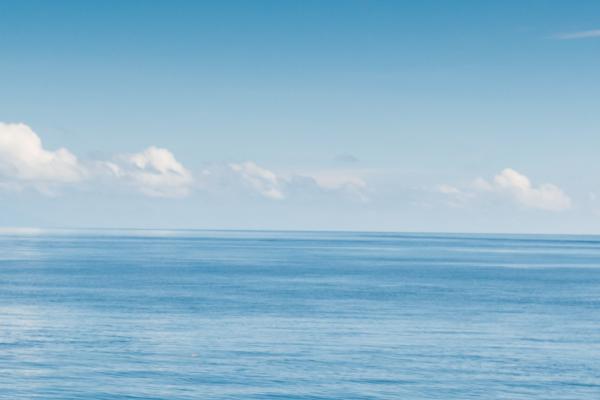
BOEM-funded research continues to contribute to the growing body of scientific knowledge on the marine environment and informs BOEM's decision-making regarding renewable energy planning, leasing, and development efforts. Take a look at the studies underway to learn more:
Highlighted studies:
- The Realtime Opportunity for Development Environmental Observations (RODEO) study takes direct, real-time measurements of the nature, intensity, and duration of potential stressors during the construction and initial operations of selected offshore wind facilities. Data collected under RODEO may be used to help inform future decision making on offshore wind. For more information, please see: https://www.boem.gov/rodeo
Birds and Bats
Tracking Movements of Terns that Use New England Staging Sites
- Deploying new tracking technology to describe post-breeding offshore movements of common terns.
Cultural and Archaeological Resources
Capacity Building and Collaboration with the Aquinnah and Mashpee Wampanoag Tribes
- Collaborating with Tribes to include tribal understanding of the marine and coastal environment
Environmental Fates and Effects
- Evaluating chemicals used for offshore wind and their potential environmental consequences
Real-time Opportunity for Development Environmental Observations (RODEO) II
- Evaluating sound data collected during construction at Block Island Wind Farm to evaluate the propagation of sound in sediments
Sediment-borne Wave Disturbances and Propagation and Potential Effects on Benthic Fauna
- Modeling sound from pile driving in sediments
Environmental Monitoring
Ecological Baseline Study of the U.S. Outer Continental Shelf Off Maine
- Collecting baseline data of marine species distribution using aerial surveys of the Gulf of Maine
Standardizing Integrated Ecosystem-Based Assessment Nationally
- Developing methodology to apply ecosystem-based management to offshore wind development
Using observations and modeling to assess the risk to marine life from offshore wind development
Fish and Fisheries
A Database and Acoustic Reference Catalog of Marine Fish Sounds—Atlantic Pilot
- Creating a library of fish sounds to identify fish collected in the marine environment from datasets collected using acoustic monitoring.
- Examining the effects of offshore windfarm construction noise on two key commercially and ecological important taxa, squid and black sea bass, using field-based controlled exposures
- Using expert scientists to develop survey methodologies addressing effects from presence of offshore wind structures
Evaluating Effectiveness of Nature Inclusive Design Materials
- Examining several types of scour and cable protection materials for their ability to support marine life
Exploring the Connectivity Among Offshore Wind Turbines
- Using telemetry and other innovative techniques to evaluate the movements of fish species between turbines
Movement Patterns of Fish in Southern New England
- Using new technologies to study cod and other fish species in the Southern New England Area
- Employing non-lethal, state of the art techniques to survey fish and habitat within and around wind farms
Understanding of Atlantic Sturgeon Migratory Patterns – Integrating Telemetry and Genetics
- Connecting genetics and fish movements to better understand how sturgeon migrate between rivers and the ocean
Marine Mammals and Other Protected Species
Assessing Population Effects of Offshore Wind Development on North Atlantic Right Whales
- Using modeling to assess the effects from offshore wind development on the North Atlantic Right Whale
- Comparing observation methodologies using traditional survey methods and new technologies.
Behavioral Response of Sea Turtles from Controlled Exposures to a Mobile Impulsive Sound Source
- Using telemetry to determine how leatherback sea turtles respond to a sound source in the ocean
Atlantic Marine Assessment Program for Protected Species III
- Continuation of broad-scale surveys for marine mammals and turtles on the outer continental shelf
Comparative Study of Aerial Survey Techniques
- Using two survey data sets collected using different methods to compare results
Endangered Atlantic Sturgeon Habitat Use in Mid-Atlantic Wind Energy Area
- Provide information on the seasonal patterns of occurrence and habitat use as well as explore the underlying causal mechanisms for Atlantic sturgeon habitat selection in and around the Virginia WEA and the Sandbridge Shoal sand borrow site in BOEM’s Mid-Atlantic Planning Area.
Gulf of Mexico Marine Assessment Program for Protected Species (GoMMAPPS)
- Improve information about protected living marine resources through multi-year surveys of marine mammals, sea turtles, and sea birds in the Gulf.
- Using field investigations to link right whale distributions with their prey
Mapping Abundance, Distribution, and Foraging Ecology of Gray Seals in the North Atlantic
- Using satellite tagging to understand the distribution and foraging ecology of Gray Seals in Southern New England Wind Energy Areas
- Continuing of aerial surveys over the Massachusetts and Rhode Island wind energy areas
- Deploying passive acoustic monitoring in the Southern New England area
Protected Species Database and Information Management
- Creating a database of protected species observer data to enhance observations of protected species
- Updating the risk assessment model and extending to regions beyond the Atlantic
Physical Environment
Offshore Renewable Energy Feasibility Study Across Technology Types for the U.S. Gulf of Mexico
- Provide a comprehensive survey across the various types of offshore renewable energy technologies and perform an assessment of their technical and economic feasibility in the Gulf to inform the Bureau’s strategic planning.
Offshore Wind Impacts on Oceanographic Processes: North Carolina to New York
- Developing models of oceanographic processes to understand how wind development may alter those processes
Social, Economic and Cultural Resources
Coastal Landscape/Seascape Character Classification and Assessment Methodology Development
- Standardizing methodologies for evaluating scenic and visual resource impacts from offshore wind development
Workshops and Literature Synthesis
- Synthesizing existing ecosystem data in the Gulf of Maine and determining additional data needs
Support for Regional Wildlife Science Collaborative Ocean Portal Products and Services
- Developing data products for the regional ocean data portals

